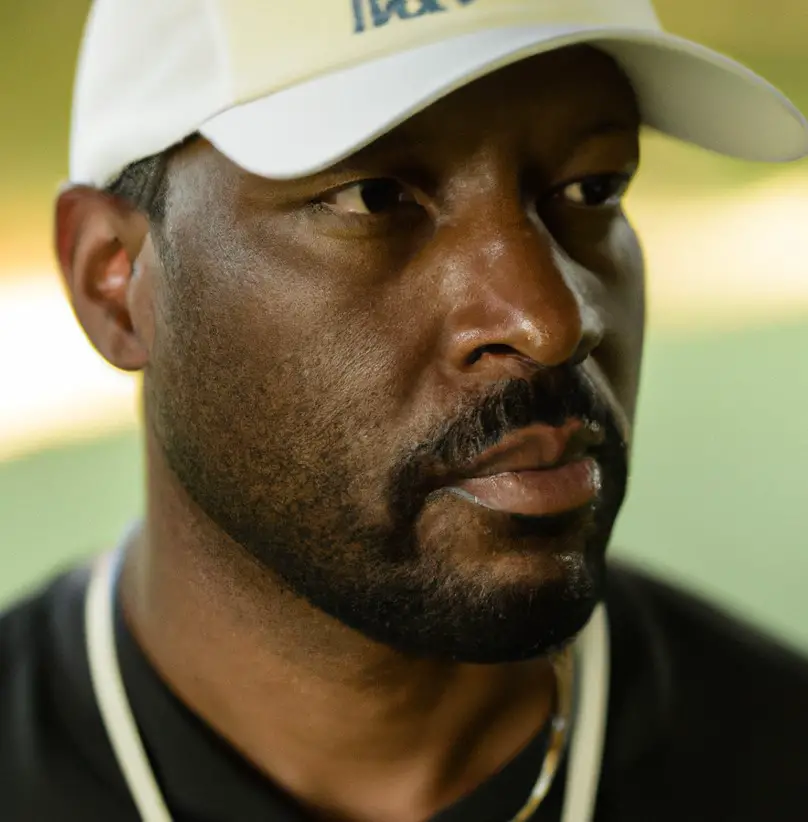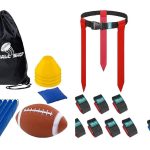As a flag football coach with over a decade of experience, I have seen firsthand the impact that a successful leader can have on a team and its players – both boys and girls.
Whether you are a seasoned veteran or a newcomer to the sport, the role of the coach is crucial in the development of youth players and the success of a team.
It me a few years of coaching and encountering challenges day after day to figure this out. You can learn from my missteps and implement my humble advice.
In this article, I will explore what it takes to be a successful flag football coach, from understanding the game to mastering strategy, and inspiring your players to give their all.
Understanding the Game
One of the most important aspects of being a successful flag football coach is having a deep understanding of the game. This includes being familiar with the rules and regulations, as well as keeping up with new developments and innovations in the sport.
To gain a deeper understanding of flag football, I highly recommend studying the game and its history. This will give you a better understanding of the strategies and techniques that have proven successful over the years, as well as help you stay up to date with the latest trends in the sport.
Additionally, attending coaching clinics and workshops, and networking with other coaches, can be a great way to expand your knowledge and stay connected with the flag football community.
Having a mentor who already has years of experience coaching can be incredibly valuable in this process. This person can provide you with guidance and advice, as well as share their experiences and insights with you.
Staying informed about the rules and regulations of flag football is also important for success. This means regularly reviewing the rules, being familiar with the different playing formats, and ensuring that your team is following all of the regulations and guidelines.
It’s also important to stay up-to-date with the latest coaching trends and techniques. This can include attending coaching clinics and conferences, reading coaching books and articles, and seeking out professional development opportunities.
Player Development
One of the most important aspects of being a successful flag football coach is player development. This means fostering a positive and supportive environment, encouraging individual growth and improvement, and developing a comprehensive training program that will help players become the best versions of themselves as people and athletes.
A successful coach understands that player development goes far beyond simply teaching players how to play the game; it also includes helping them develop the mental and emotional skills they need to be successful on and off the field.
To promote player development, it is important to create a positive and supportive environment for your players. This usually means providing them with the tools and resources they need to succeed and being there for them both on and off the field.
Encouraging individual growth and improvement is key to promoting player development. This can be done by providing players with constructive feedback, setting attainable goals, and helping them develop their skills through a comprehensive training program.
Game Planning
Another important aspect of being a successful flag football coach is game planning. This involves studying your opponents, creating a plan that takes advantage of your team’s strengths and exploits the opponent’s weaknesses, and adapting to changing circumstances during the game.
A successful coach understands that game planning is about more than just drawing up a few winning plays; it is also about being able to make quick, informed decisions during the contest and adapting to changing circumstances on the fly.
A successful coach understands the importance of having a well-designed offensive and defensive playbook, as well as the ability to effectively coach their players to execute the plays to perfection.
When creating an offensive playbook and overall philosophy for that side of the ball, it should incorporate a variety of formations, plays, and strategies to keep your opponents guessing. It is important to consider the skill level of your players when designing your playbook, as well as the specific goals of your team.
On the defensive side, a successful coach should implement a strategy that is specifically tailored to neutralize the opponents’ offensive tendencies. This may involve incorporating various coverage schemes, blitz packages, and strategies to shut down your opponents’ offense. It is important to coach your players on the proper techniques and positioning to execute these defensive strategies effectively.
Motivating the Team
Inspiring your kids to give their all is another key aspect of being a successful coach in flag football. This means creating a positive and supportive environment, encouraging a never-give-up mentality, and recognizing and celebrating individual and team successes.
A good coach understands that motivating your players is about more than just winning games; it is also about helping them develop the mental and emotional skills they need to be successful in life.
To motivate your team, it is important to create a positive and supportive environment that encourages players to give 100% of themselves. This can be done by providing them with the tools and resources they need to succeed, and by being there for them both on and off the field.
Whether it is acknowledging a player’s hard work and dedication, or celebrating a big win, recognizing and celebrating successes helps build a positive and supportive team environment.
Leadership Skills
Finally, being an outstanding flag football coach requires strong leadership skills. This includes being able to effectively communicate with your boys and girls and their parents/family, managing team dynamics, and fostering a positive team culture.
Being a leader of a team is about more than just making decisions and giving orders; it is also about inspiring others to be their best and creating a supportive environment.
To develop your leadership skills, it is important to work on your communication and interpersonal skills. You must be able to communicate adeptly with your players and their guardians, both in terms of providing direction and feedback, as well as being an understanding listener.
As a coach, you have the opportunity to positively impact the lives of young people, plus build an athlete for life. By being a good role model, mentor, and leader, you can set a positive example for your players, both on and off the field. You can do this by demonstrating good sportsmanship, working hard and playing fair, and showing respect for others.
Understanding what motivates your kids to be successful is also an important aspect of leadership. Learn about their individual goals, interests, and challenges, and find ways to tap into these motivations and provide them with the support and guidance they need to reach their goals.
Final thoughts
Being a successful flag football coach requires a combination of technical knowledge, player development skills, game-planning ability, leadership skills, and the ability to inspire your players.
Whether you are a veteran like myself or a newcomer to the sport, the key to success is staying focused on your goals, developing your skills, and working to create a positive and supportive atmosphere for your team.
With dedication, hard work, and the right approach, you can be a successful flag football coach and make a positive impact on the lives of your players.
Further reading
To become a better coach, take advantage of some of our other resources on Flag Football World. I suggest you start by reading these articles:
- Flag football beginner’s guide
- Best youth coaching tips
- Flag football penalties
- Understanding field lines and rules

Marquel Williams is a highly regarded flag football coach with over a decade of experience in the sport. He is dedicated to developing young flag football players and helping them reach their full potential. Throughout his coaching career, Marquel has won hundreds of games, showcasing his expertise in player training, game planning, and motivating his teams.







